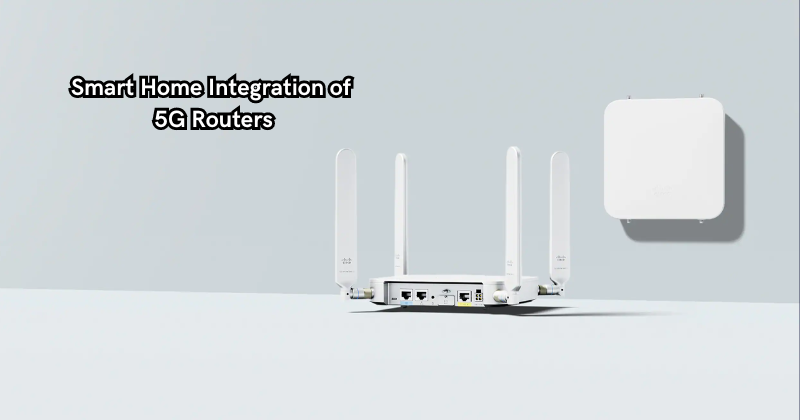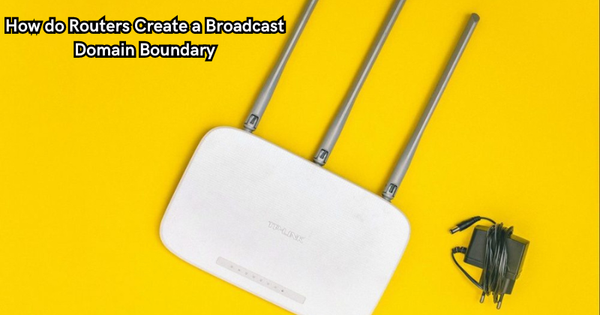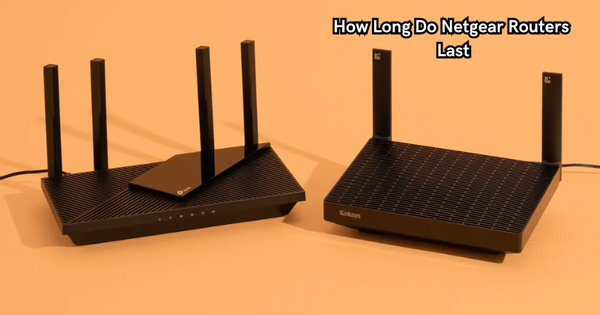The integration of 5G routers into smart home systems marks a significant leap towards a more connected and efficient living environment.
With the advent of 5G technology, these advanced routers offer ultra-fast and reliable internet connectivity, transforming the way smart devices communicate and operate within the home. Imagine seamless streaming, lag-free gaming, and instant access to smart appliances and security systems—all powered by the high-speed capabilities of 5G routers.
In this exploration, we delve into the transformative impact of integrating 5G routers into smart homes, unlocking new possibilities for automation, convenience, and enhanced user experiences. Stay tuned as we navigate the exciting realm of smart home integration with cutting-edge 5G technology.
The Power of 5G Routers in Smart Homes
The integration of 5G routers brings a multitude of benefits to smart homes, including:
- Ultra-Fast Internet Speeds: With the ability to deliver speeds up to 20 times faster than 4G, 5G routers provide blazing-fast internet connectivity for all your smart devices. This means less lag, quicker downloads, and smoother streaming for a more seamless user experience.
- Lower Latency: The low latency of 5G networks reduces the delay between devices, making communication and data transfer virtually instantaneous. This leads to faster response times for smart home devices, resulting in a more efficient and responsive system.
- Higher Bandwidth Capacity: 5G routers have a higher bandwidth capacity, allowing for more devices to connect simultaneously without compromising performance. This means you can have a larger number of smart devices running in your home without experiencing slow internet speeds or connection drops.
- Reliable Connectivity: With 5G technology, there is less interference from nearby networks and obstacles, ensuring a more stable and reliable internet connection for all your smart devices.
- Lower Power Consumption: 5G routers use less power compared to their 4G counterparts, resulting in more energy-efficient and cost-effective smart home systems.
Nowadays, Wi-Fi 6 routers are becoming popular as they have smarter and more advanced technology with better speed, higher LAN ports, mesh Wi-Fi, and MU-MIMO, which increase the range of signals. The integration of 5G routers into smart homes further enhances the capabilities and benefits of these advanced routers.
What is a 5G Router and How its Work for Smart Home
A 5G router is an advanced networking device that uses 5G technology to connect to the internet.
It works by taking the 5G signal from your service provider and broadcasting it as a wi-fi network in your home, allowing all your smart devices to connect and communicate with each other. Wireless technology has never been more powerful and efficient with the integration of 5G routers into smart homes.
The high-speed and low latency capabilities of 5G routers make them ideal for powering smart homes, enabling devices to communicate and operate more efficiently.
With 5G routers, smart home systems can be fully integrated and controlled through a central hub or app, providing seamless connectivity and automation. Wired devices that require an ethernet connection can also benefit from 5G routers, as they offer a more stable and high-speed alternative.
Key Considerations When Choosing a 5G Router for Your Smart Home
Before integrating a 5G router into your smart home system, there are a few key considerations to keep in mind:
Coverage and Service Provider Availability:
As 5G technology is still in its early stages, it may not be available in all areas or through all service providers. Before purchasing a 5G router, ensure that your area has coverage from a reliable provider.
Additionally, 5G home routers provide better coverage and capacity, enabling multiple users to connect simultaneously, so it's essential to choose a router with good coverage in your home.
Compatibility with Smart Home Devices:
It's essential to make sure that the 5G router you choose is compatible with your existing smart home devices.
This will ensure seamless connectivity and prevent any potential issues or compatibility conflicts. Device management platforms can help you keep track of all your devices and their compatibility with different routers.
Security Features:
With the increased use of connected devices, security is a crucial factor to consider. Look for 5G routers with built-in security features such as firewalls and encryption to protect your smart home from potential cyber threats.
Network connectivity and security platforms can also provide an added layer of protection for your system. Network technologies like SD-WAN can also help to mitigate potential security risks.
Range and Speed Requirements:
Consider the size of your home and the speed requirements of your devices when choosing a 5G router. Larger homes may require routers with longer-range capabilities, while high-bandwidth devices like gaming consoles may need faster speeds for optimal performance.
High-speed internet connectivity is essential for a seamless smart home experience. Router configuration and network architecture also play a vital role in maximizing the potential of 5G routers.
Price:
5G routers can be more expensive than 4G routers, so it's essential to consider your budget and the features you need before making a purchase.
The Impact of 5G Integration on Smart Home Automation and Benefits
By integrating 5G routers into smart homes, we can unlock new possibilities for automation and convenience. Here are a few ways in which this integration can enhance our living experience:
Real-Time Monitoring and Control:
With the low latency of 5G networks, smart home devices can be monitored and controlled in real time. This means you can adjust your thermostat or turn off your lights from anywhere at any time.
Seamless Integration of Devices:
5G technology allows for faster and more reliable communication between devices, enabling them to work together seamlessly. This means you can set up routines or scenarios where multiple devices can operate simultaneously for a more coordinated and efficient smart home system. Network congestion can also be reduced with the use of SD-WAN technology.
Enhanced User Experience:
With ultra-fast internet speeds and low latency, 5G integration can provide a more seamless and enjoyable experience for smart home users. From streaming music and videos to controlling devices with voice commands, the possibilities are endless.
Reduced Energy Consumption:
With features like real-time monitoring and control, 5G integration can help reduce energy consumption in smart homes by allowing users to manage their devices more efficiently. This can lead to cost savings and a more sustainable lifestyle. Wi-fi technology, like mesh networks, can also play a role in optimizing energy usage by directing signals to specific areas of the home.
Low Latency Gaming:
With 5G routers, gamers can enjoy low-latency gaming on their smart devices, providing a smoother and more responsive gaming experience. Latency issues, such as lag and delays, can be significantly reduced, making 5G integration a game-changer for the gaming community.
Real-Life Applications of 5G Routers in Smart Homes
Now, let's take a look at some real-life applications of 5G routers in smart homes:
Virtual and Augmented Reality:
5G routers can support the high bandwidth and low latency required for virtual and augmented reality applications. This means users can experience immersive gaming, entertainment, or educational content in their smart homes. Web interfaces and mobile apps make it easy to access and control your smart home devices remotely.
When disaster strikes and traditional networks are down, disaster recovery teams and emergency services can rely on 5G routers to maintain communication and connectivity, making them essential for security and public safety.
Energy Management:
By connecting to smart meters and energy-monitoring devices, 5G routers can help users track their energy consumption in real time. This information can be used to make more informed decisions about energy usage and save costs.
Smart lights:
With 5G integration, users can control their smart lights with voice commands or through mobile apps, making it easy to manage and customize lighting in their homes.
Remote Healthcare:
With the low latency of 5G networks, remote healthcare services such as telemedicine and remote patient monitoring can be enhanced. 5G routers can provide a stable and reliable connection for remote consultations, making healthcare more accessible and convenient.
With real-time communication between devices, doctors can also remotely monitor patients' health in their own homes. Remote locations where wired connections are not feasible can also benefit from 5G routers.
Smart Home Security Systems:
With 5G routers, smart home security systems can be more responsive and reliable. This allows for real-time monitoring and control of cameras, door locks, and other security devices from anywhere. From virtual assistants to smart appliances, 5G integration is transforming the way we live and interact with technology in our homes.
As this technology continues to advance, we can expect even more innovative solutions for our smart homes in the future.
FAQs
What is 5G for the smart home?
5G for smart home refers to the integration of 5G technology into our homes, allowing for faster and more reliable internet connectivity and communication between devices. This can enhance the convenience, efficiency, and overall user experience of a smart home.
How does 5G improve gaming in a smart home?
With higher speeds and lower latency, 5G routers provide a smoother and more responsive gaming experience for smart home users. This means less lag and delays, resulting in a more enjoyable gaming experience.
Can I use 5G as home internet?
Yes, 5G can be used as home internet through the integration of 5G routers. This allows for faster speeds and more reliable connectivity compared to traditional wired connections. However, availability may vary depending on location and service providers.
Is 5G integration expensive?
The cost of 5G routers can vary depending on the features and capabilities they offer. However, as 5G technology becomes more widespread, it is expected that the cost will decrease and become more accessible for consumers.
Conclusion
In conclusion, the integration of 5G routers into smart home ecosystems represents a groundbreaking fusion of high-speed connectivity and intelligent automation.
By harnessing the power of 5G technology, homeowners can enjoy unparalleled levels of speed, reliability, and responsiveness in their smart devices and applications. From efficient energy management to enhanced security features, the seamless integration of 5G routers paves the way for a truly interconnected and streamlined living experience.
As we embrace the era of smart homes powered by 5G, the potential for innovation and convenience knows no bounds. By leveraging this cutting-edge technology to its fullest extent, homeowners can embark on a journey towards a more efficient, secure, and dynamic lifestyle within the realms of their interconnected smart sanctuary.



